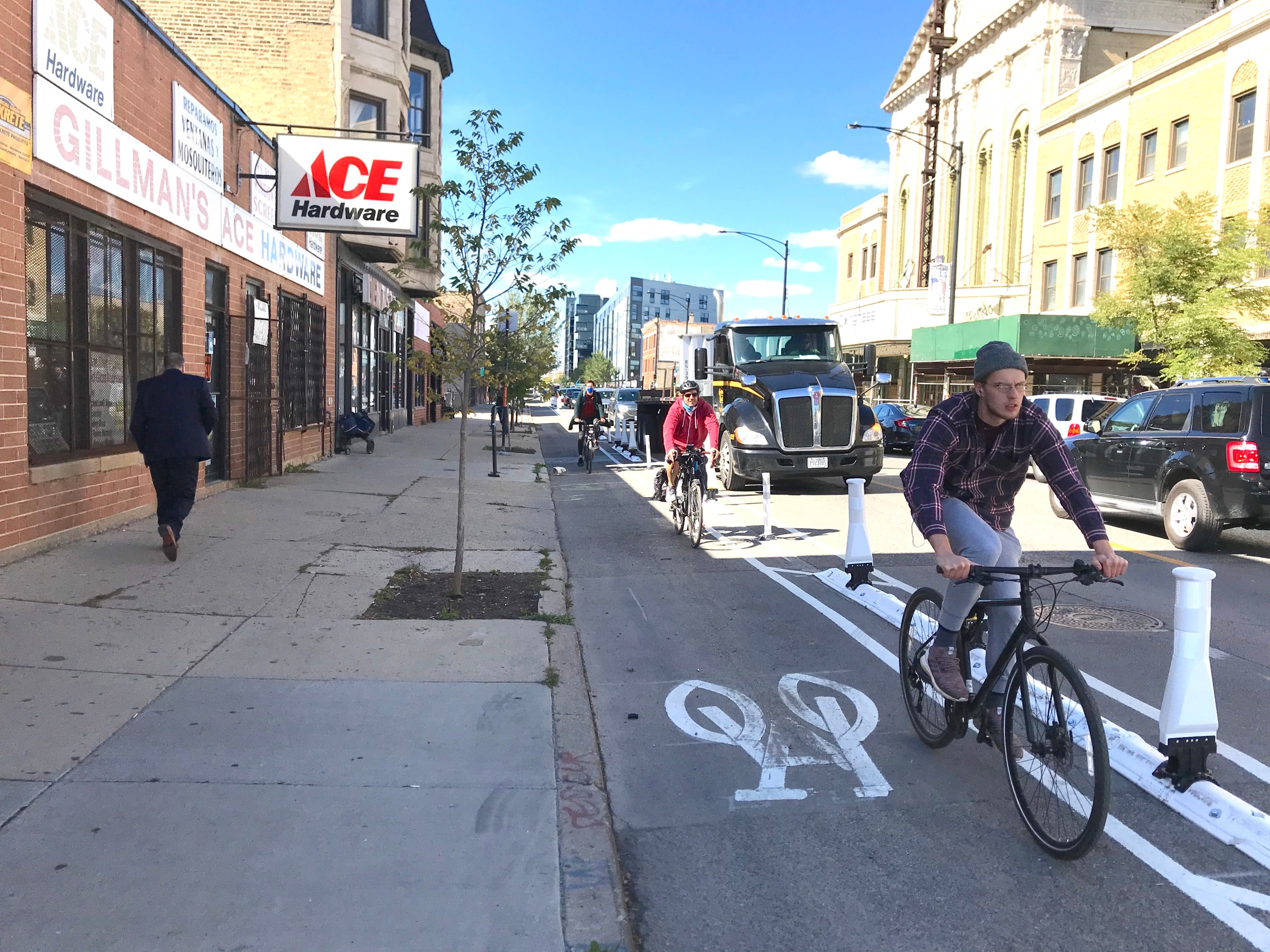Logan Square's Gillman Ace Hardware is getting ready to close its doors at the end of the month. Owner Alan Gillman has blamed the protected bike lanes that were installed on Milwaukee Avenue in fall 2020, replacing curbside parking on the west side of the street, for a drop in sales. That's despite the fact that there were private parking spots behind his store that he could have made available to customers, directing them there via a sign on the storefront, while having staff use street parking.
A contributing factor in Gillman's business woes was likely the general trend towards mom-and-pop hardware stores going the way of the dinosaur, with the rise in online retail being a major issue. And then there was the owner's widely reported habit of playing anti-immigrant right-wing talk radio in his shop in a heavily Latino community, which probably didn't help matters. Meanwhile, the Chicago Department of Transportation reports that the new infrastructure has contributed a 56 percent decrease in crashes on the corridor.
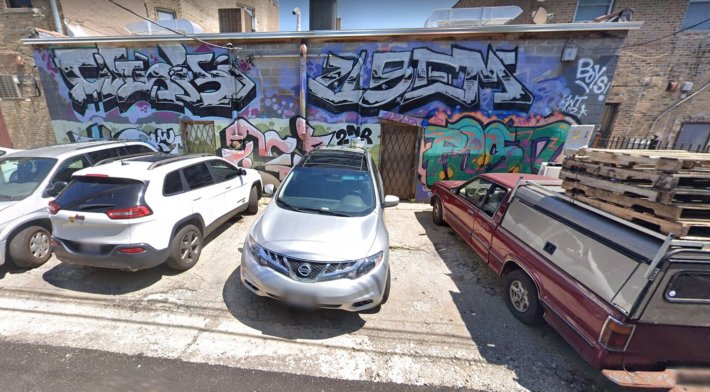
On the eve of Gillman's closure, Chicago magazine's Ted McClelland ran a piece looking at the issue of business owners scapegoating bike lanes for poor sales. He noted that a Portland State University study found that installing protected bike lanes either has minimal or positive impacts on local businesses. Moreover, New York City found that that the conversion of parking spots to new bikes lanes on Skilllman Avenue in Queens in 2017 correlated with a 12 percent increase in sales. That's due in part to the fact that people traveling at slower speeds on bikes are more likely to notice and patronize independent businesses.
Still, McClelland heard from some merchants and chamber of commerce reps who insisted that swapping parking spots for bike lanes, as was also recently done on Clark Street in Edgewater, is killing commerce. “We get a lot of calls from the businesses there that it’s destroying their business,” said Andersonville Chamber of Commerce’s director of business services David Oakes.
One voice that's largely missing from McClelland's otherwise-well-constructed piece is the opinions of people who ride in these bike lanes, so we asked Streetsblog readers for their takes. Here are a few responses.
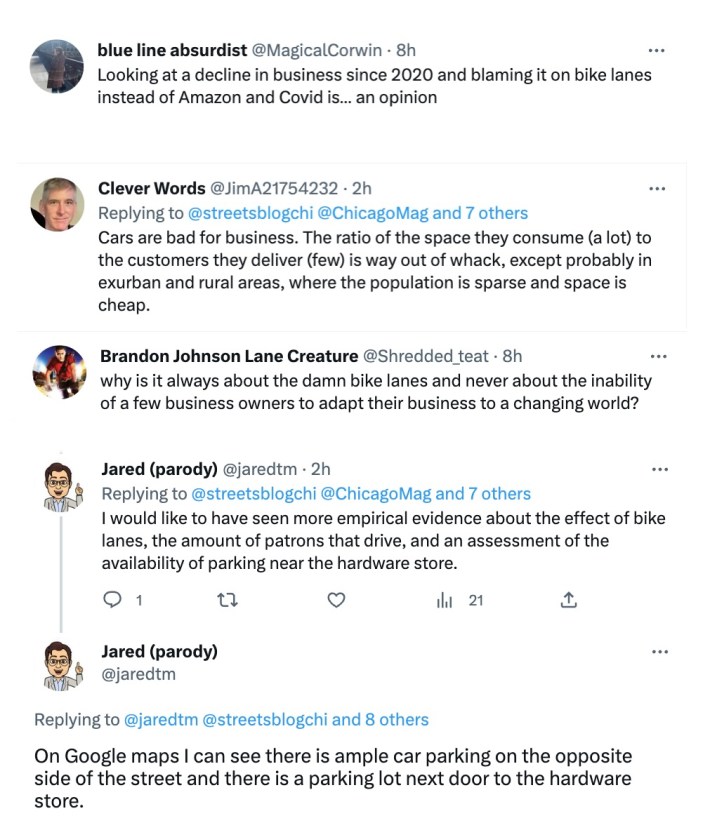
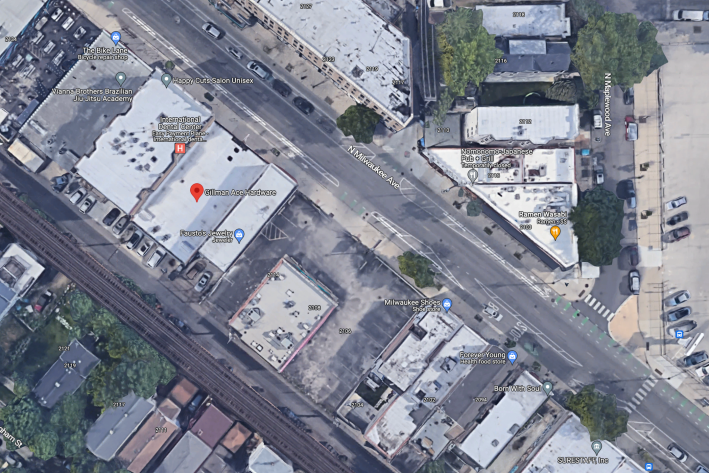
This debate is going to take center stage when it's time to make a final decision about the city's tentative proposal to convert parking on one side of Clark Street in Uptown to protected bike lanes as part of the Clark Street Crossroads planning project. McClelland noted that Chicago Department of Planning and Development commissioner Maurice Cox has said adding a protected bikeway is “at the top of the list” of meeting attendees' priorities, but added that input from local businesses would also be taken into account. The Andersonville chamber is skeptical about the plan.
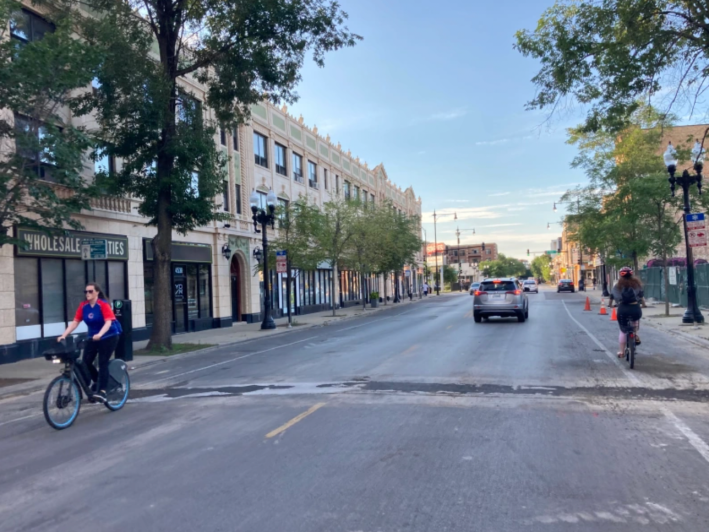
"Andersonville has long been known for its locally-owned small businesses, and no one wants to see any of them lose business for any reason," Zak Patterson, an organizer with the community's walk/bike/transit advocacy group SlowStreets, told Streetsblog. "This neighborhood is special and we all want it to flourish economically and socially. However, no neighborhood is special because of parking availability. The current built environment is not immutable."
"If we want to have long term growth for the neighborhood, then we have numerous choices," Patterson added. "We can encourage more housing density, we can make it safer for people to walk and bike, and we can improve bus service. It’s hard to imagine bringing even more people by car. We’ve spent decades promoting cars. We’re maxed-out on cars. It’s time for some new thinking."
